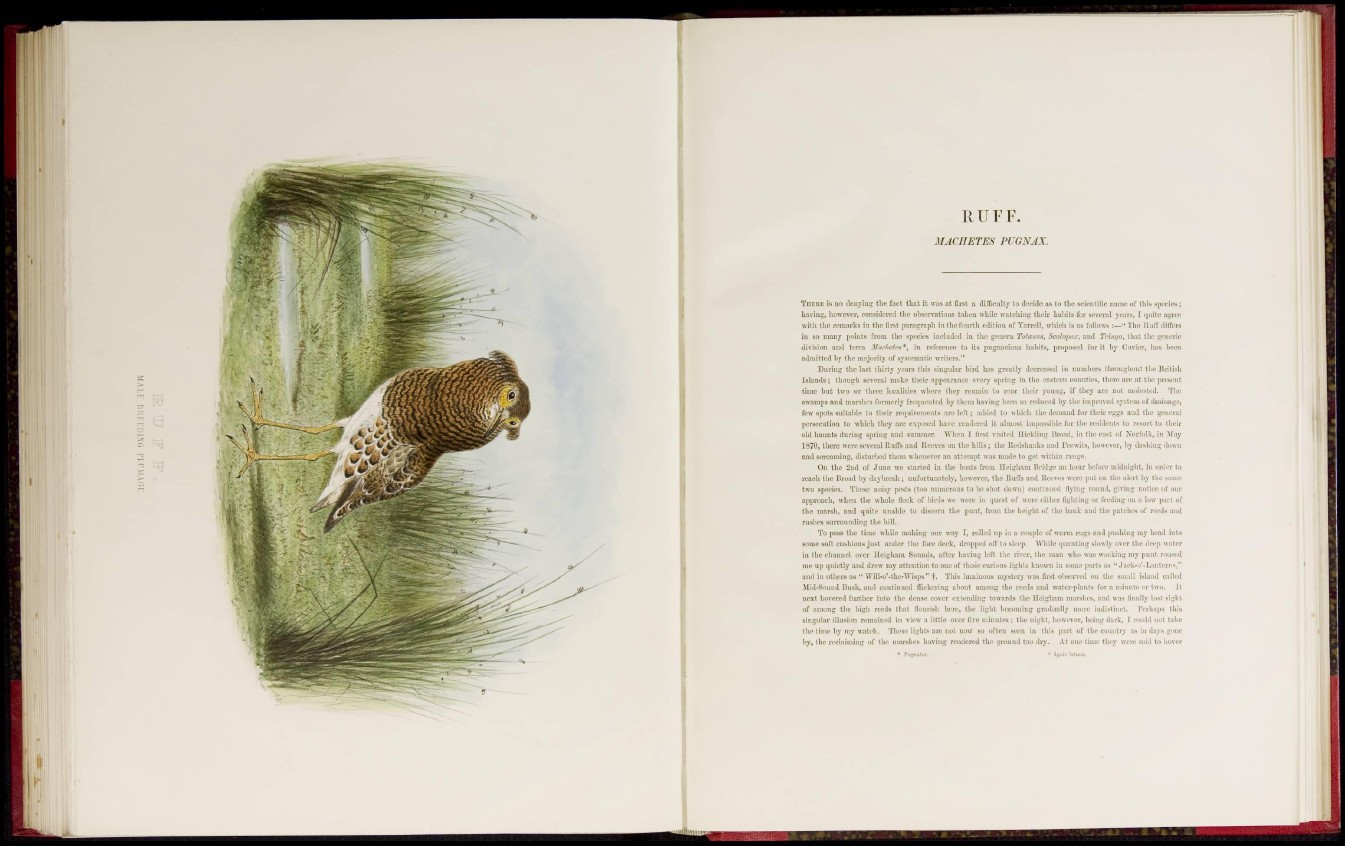
RUFF.
MACHETES PÜGNAX.
TnERii is no denying the fact that it was at first, a difficulty to decide as to (lie scientific name of this spceies ;
having, however, considered the observations taken while watching their habits for several years, f quite agree
with the remarks in the first paragraph in the fourth edition of Varrell, which is as follows :—The Ruff differs
in so many points from the species included in the genera Tottmut, SooiopOT, and Tr'uiiju, that the generic
division and term JFttehete**, in reference to its pugnacious habits, proposed for it by L'uvier, has been
admit ted by the majority of systeinal ie writers."
During the last thirty years this singular bird has greatly decreased in numbers throughout the British
Islands ; though several make their appearance every spring in the eastern counties, there are at the present
time but two or three localities where they remain to rear their young, if they are not molested. The
swamps and marshes formerly frequented by them having been so reduced by the improved system of drainage,
few spots suitable to their requirements are left ; added to which the demand for their eggs and the general
persecution to which they are exposed have rendered it almost impossible for the residents lo resort to their
old haunts duriug spring aud summer. When I first visited lliekling Broad, in the cast of Norfolk, in May
1S70, there were several Roll's aud Reeves un the hills ; the Redshanks and Peewits, however, by dashing down
and screaming, disturbed theiti whenever an attempt was made to get within range.
On the 2nd of Juno wo started in the boats from ITcigham Bridge an hour before midnight, in order to
reach the Broad by daybreak ; unfortunately, however, the Ruffs and Reeves were put on the alert by the same
two species. These noisy pests (too numerous to he shot down) continued Hying round, giving notice of our
approach, when the whole fiock of birds we were in quest uf were cither fighting or feeding on a low pert of
the marsh, and quite unable to discern the punt, front the height of the bank aud the patches of reeds and
rushes surrounding the hill.
To pass the time while making our way I, rolled up in a couple of warm rugs and pushing my head into
some soft cushions just under the fore deck, dropped off to sleep. While quanting slowk ever the deep water
in the channel over llcighatu Sounds, alter having left the river, the man who was working my punt roused
me up quietly and drew my attention to one of those curious lights known in some parts as " J ack-o'-Lanterns,"
and in others as " Will-o'-thc-Wisps " +• This luminous mystery was first observed on the small island called
Mid-Sound Bush, and continued flickering about among the reeds and water-plants for a minute or two. It
next hovered further into the dense cover extending towards the llcighatu marshes, and was finally lo-l sight
of among the high reeds that flourish here, the light becoming gradually more indistinct. Perhaps this
singular illusion remained In view a little over five minutes ; the night, however, being dark, 1 could not lake
the time by my watch. These lights are not now so often seen in Ibis part of the country as in days gone
by, the reclaiming of fhe marshes having rendered the ground too dry. At one time they were said to hover